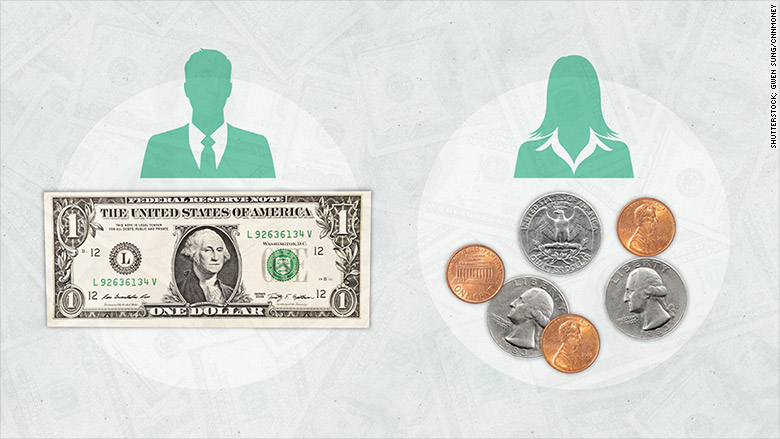Editor's Note:
Silvina Moschini is an entrepreneur specializing in the digital transformation of the world of work.
She is the founder and president of TransparentBusiness, a platform that allows remote teams to be managed transparently.
In addition, she is the founder and CEO of SheWorks !, an online store for recruiting professional women with flexible models.
The opinions expressed in this comment belong exclusively to the author.
See more op-ed articles at CNNE.com/opinion
(CNN Spanish) -
Women in Latin America earn up to 30% less than men for similar positions and jobs, despite obtaining more university degrees, masters and doctorates.
However, the employment scenario after the covid-19 pandemic could change the equation towards pay equity.
Remote work came to prove that not all important decisions are made in a boardroom.
Some may come from a laptop resting on a kitchen table, with children's voices in the background.
The covid-19 pandemic put men and women alike to work from home, which impacted on a more equitable distribution of the time that we and they dedicate to family and work.
And yet this reality does not necessarily mean progress in working conditions for women.
On the one hand, the wage gap that compensates men and women differently persists: 2020 statistics indicate that we receive 81 cents for every dollar paid to a man.
MIRA: «Song without fear», the feminist anthem that united many women in Latin America. We talk with Vivir Quintana, creator of the theme
On the other hand, the impact of the pandemic was more negative for them than for them.
The Women in the Workplace study, published annually by McKinsey, reveals that women, especially those of color, are more likely to have been laid off during the pandemic crisis.
Those who have kept them have had to face the double challenge of dividing themselves between their profession and household chores, activities that fall even more heavily on us.
The good news is that remote work allows greater work flexibility and this is a benefit for women.
Several statistics indicate that the arrival of children affects the professional career of mothers more than that of fathers.
In this sense, 43% of mothers abandon their job or put their career on hiatus.
Others seek solutions that range from giving up part of their pay for flexible hours to opting for freelance careers or launching into entrepreneurship.
But the post-coronavirus scenario may contain the seeds of a turnaround.
Although the flexibility that remote working allows will not automatically solve all gender inequalities, being able to compete strictly with our capabilities marks another starting point.
When the bargaining chip is talent, the pay gap loses its livelihood.
Working in the cloud multiplies job opportunities, which are as many as there are talented professionals in the world, of any gender, age and nationality.
And it also tends to equalize the value of work.
If before the salary was defined based on local references, now it is established according to international guidelines.
Perhaps, on average, the universal salary is a little lower in value than that used in the most developed countries, but it allows access to transatlantic opportunities in the best companies.
The digitization of work promotes schemes in which results are valued.
Reversing the equation will help us all wake up from those outdated schemes in which professionalism is still measured by variables outside of competence and delivery.
Close to celebrating International Women's Day, we work with conviction for a world of work in which salary is measured by talent, without bias of any kind.
LOOK: Women's Day: 5 things that the coronavirus pandemic worsened for girls and women
Women's Day

